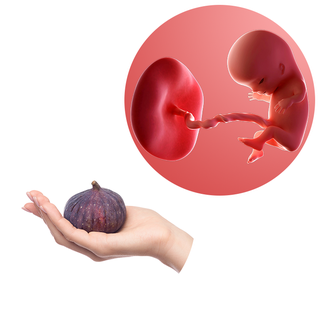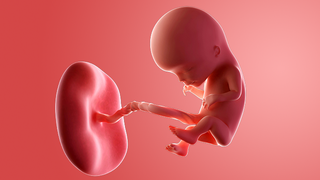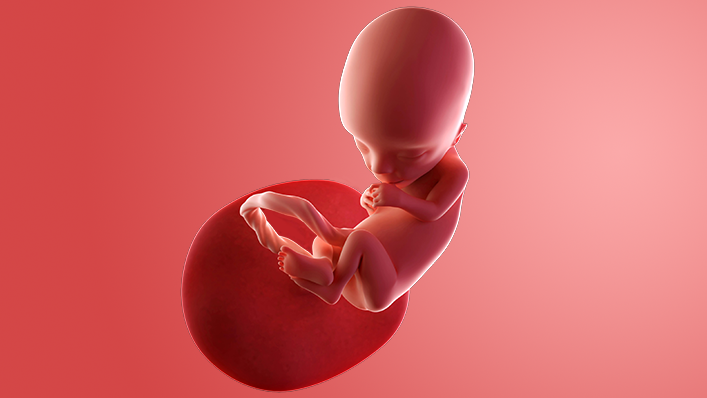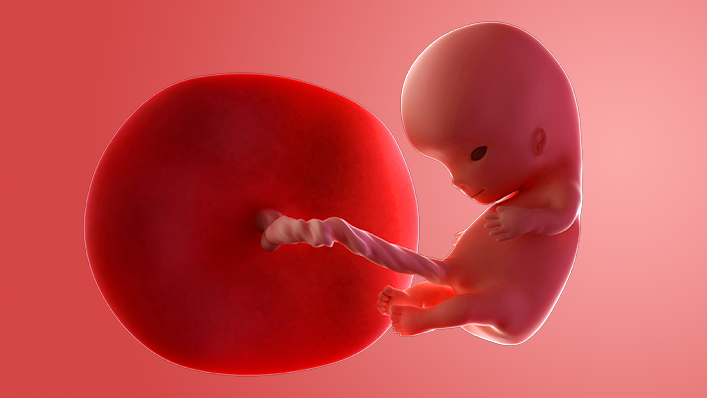Week 11
You only have 2 weeks until you start your 2nd trimester. This is when many women start to "glow" and regain their energy as their hormones settle down.
You'll be offered a range of tests around now that will look at your blood, urine and blood pressure. These tests provide an opportunity to have yours and your baby's health checked.
You can find out more about antenatal checks and tests on the NHS website.
What's happening in my body?
As you start to bulge out a bit, your muscles and ligaments will stretch, and this could give you pains around your stomach. If it hurts a lot, see your midwife or doctor as soon as possible.
Your body is now pumping around up to 50% more blood than usual. The blood feeds your womb, but it can also make you feel hot, sweaty and dizzy. That's your baby's way of telling you to rest.
Your baby has previously been fed by a yolk sac, but a new organ called the placenta is about to take over. The placenta will nourish the baby and remove waste. While the switchover happens, the hormones involved could make you feel tired and emotional.
Early pregnancy symptoms (at 11 weeks)
You may be feeling very tired at the moment, but gentle exercise such as walking could help you feel better.
Your early signs of pregnancy could also include:
- aches and pains around your bump
- nausea
- mood swings
- a metallic taste in your mouth
- sore breasts
- indigestion and heartburn
- headaches
- dizziness
- new likes and dislikes for food and drink
- a heightened sense of smell
- a white milky pregnancy discharge from your vagina
- light spotting (see your doctor if you get bleeding in pregnancy)
- cramping, a bit like period pains
- darkened skin on your face or brown patches - this is known as chloasma or the "mask of pregnancy"
- greasier, spotty skin
- thicker and shinier hair
- bloating and the feeling of being bloated (read ways to cope with bloating on week 10's page)
What to expect from your first scan
Hospitals in England usually offer 2 ultrasound scans during pregnancy. The first is a dating scan between 8 and 14 weeks.
The sonographer (who takes the test) uses harmless invisible waves to build up a detailed picture of the inside of your womb.
The test can include a nuchal translucency test (NT) that measures the fluid at the back of the baby's neck, as part of a screening process for Down's syndrome.
What does my baby look like?
Your baby, or foetus, is now around 41mm long from head to bottom, which is about the size of a fig. The head is still supersized, but the body is growing quickly.
The fingers and toes are separating out. There are tiny fingernails and miniature ears.
Although your baby is kicking around inside your womb, you probably won't feel anything for several weeks.

Action stations
Sexually transmitted infections (STIs)
Do you think you or your partner could have an STI? If so, get checked out, as this could affect your baby's development. Talk to your midwife or GP, or visit a sexual health clinic.
Long-term conditions
If you have a long-term health condition, then let your specialist or GP know you're pregnant as soon as possible.
Don't stop taking any regular medication without discussing it with your doctor first.
Want to know when the baby's due?
Use the NHS's pregnancy due date calculator. You'll get a more accurate date from your doctor or midwife when you have a dating scan (usually at 8 to 14 weeks).
More in week-by-week

Week 12
There's a good chance that the placenta is now feeding your baby, having taken over from the yolk sac, and once this happens your hormones will calm down a bit.
More in week-by-week guide to pregnancy


